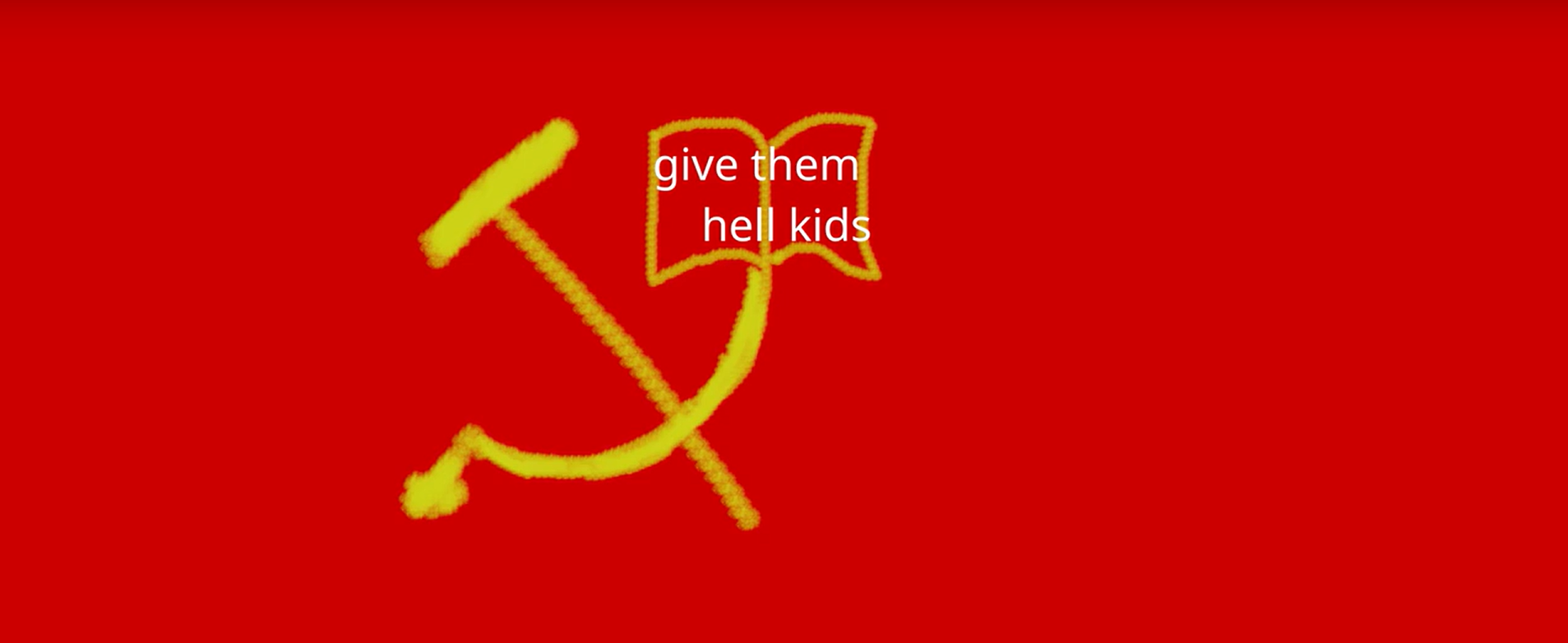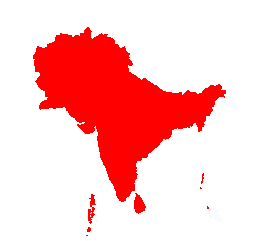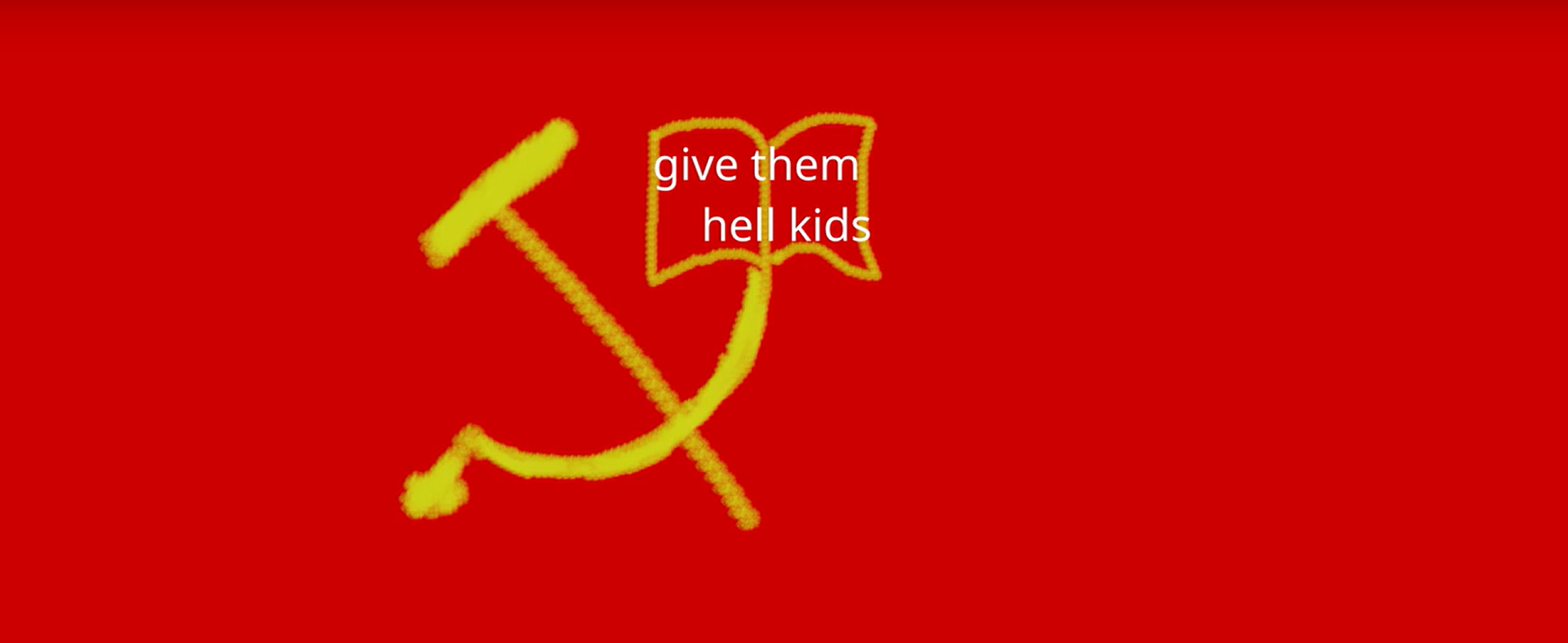No Más
YouTube: https://www.youtube.com/957metadeth
- 8 Posts
- 27 Comments
And that, is why we must accept Ludditism where we can, as a way to oppose misguided tech development.
Individualism was constructed by the bourgeoisie as an ideal so that they could freely exploit wage labour. They successfully couched it up in an idea of “liberty” with the help of some really insincere philosophy and tied it to the idea of personal growth (in places, even spirituality itself).
But this was all so that they could utilise wage labour as atomic parts of their industrial mechanism whenever they chose to.
 1·6 months ago
1·6 months agoAgree with everything you said, and I don’t have much more to add except to say that I was thinking of perfect knowledge as in if only the workings of institutions were known to all, not how they occur on a daily basis (let’s say because of an efficient education system, or media giving all the relavent info). Compare this to current day knowledge of people, where they have to depend on a lawyer or agent or someone in the know. In either case, capitalism would succeed in obstructing any legitimate public good because it is capital and financial interests that dictates these institutions workings on a daily basis. So this is an argument against “institutions” we “trust” being for our good.
 1·6 months ago
1·6 months agoThe median person has no trust in any system because they cannot begin to understand their workings.
This is what I was getting at as well. That maybe the bigger question is should we be considering the inner workings of any political system easily representable to the median person by even the most transparency imaginable. And as a thought experiment, even in a society where everyone has perfect knowledge of the system, can we trust this system to work as it says it will?
Because, even if we consider all requirements of political trust, transparency, accountability, institutional strength et al as worked out, the system still remains oppressive.
Since there are tons of academic papers and political theorisations in the liberal world about these concepts, I am looking for leftist critiques that engage with these ideals that are a facade if anything.
 1·6 months ago
1·6 months agoThere are two broad ways I can think of this and firstly it is the trust we place in our financial system. Right from the value of our currency to monetary policy, we trust the government to make fiscal decisions on our behalf. We trust the government to transparently allocate public funds. Not like PM Cares, which we have no relief to now, despite the duplicitous effort by our head of state. Heck, even in a regular transaction, we assume that we will get infrastructure that works rather than fails. All of this is a basic assumption that fails with events like demonetisation when they are conducted unilaterally.
The other way I spoke of trust is the liberal ideal of trust in institutions. Like if the Ministry of Health and Family Welfare says that COVID numbers are of a certain amount, people would report on that. But in states like Gujarat that basic premise was lost and courts had to bring up authorities to correct the numbers. So one institution helped another cover the trust deficit in this case (but we all know the caste class character of these institutions and who they really end up representing in neoliberalism).

 3·6 months ago
3·6 months agoI don’t think individual action can amount to much. Hence now I am seriously considering working with an organisation that works on ground in the environmental sector.
Organic farms, communitarian organisations, animal rescue centres, citizens’ fora all seem to be places where you can make a genuine organised effort, while feeling more connected to nature. Bonus points if they are socialist. In fact, I’d only go if they were at least socialistic about their praxis.
During COVID, I learnt by observation that such on ground organisations are the ones that determine a neighbourhood’s resilience to a natural disaster. Hence volunteering to socialistic organisations made me feel less like I am sitting by watching the climate crisis unfold.

 9·2 years ago
9·2 years agoHighways shouldn’t be unlit in the first place, I ate my words for breakfast

 8·2 years ago
8·2 years agoLet’s settle for renaming all highways to heavy vehicle transit facilities

 7·2 years ago
7·2 years agoI would rename car (and only car) headlights to car-torches, because driving with those on unlit highways doesn’t make sense to me
Photons came after the development of the scientific method and thus have a more proximate relationship with scientific purpose, rather than a mystical metaphor to whom we can only re-attribute purpose at this point.
Edit: Photons have contributed to our understanding of light, due to their scientific formulation by Einstein (amongst others), thus making their application in devices such as lasers possible. What of the “spirits” metaphors? Where do we apply them?
There are some subtle effects of his theory, which lead to the disregard for prudence in production and consumption, such as the ecofascists’ belief that overpopulation is the reason for all our traffic woes, not the inherently illogical system of using cars for every daily commute.
I agree with what you said, I’m just trying to engage with the stupidity of preferring cars.

 2·2 years ago
2·2 years agodeleted by creator
Ecofascism and its Malthussian variants in philosophy have had very subtle impacts on our psyche, IMO

 10·2 years ago
10·2 years agoThe Dispossessed by Ursula Le Guin
Regulation, comrade.
It’s not illegal to medicate against the pathogens in industrialised animal rearing because in those places it is easier to contain the spread due to the implication of an industry, that has it’s own enforcement mechanisms, and often times, is based on the scaling up of scientific practices itself, but with wet markets that have to be cracked down upon, the issue is there are many people eating from what has been scientifically discovered to be likely to give you a contagious disease. Something that I also find has it’s own literature in international law, and for good reason.
If it’s risky enough to demand border controls since ages (see history of epidemics), the inherent problem doesn’t become the industrialisation of race-specific preferences (if you may argue that wet markets are an industry), but the common good of humanity.

 412·2 years ago
412·2 years agoOkay, sorry, I just thought the “wet markets” shutting down shops and being admitted by the Chinese government was enough proof for me. But sorry if I hurt your sentiments. News of the Chinese government crackdown AFTER the COVID-19 infection, including official Chinese media sources
Will scientific government not be a part of scientific socialism, comrades? CITES Convention names many of the species named to be consumed there, per the scientific community’s understanding of what animals can be traded and to which establishments (mostly zoos, sanctuaries, etc.).
It is what inspired the crackdown that the Chinese sources have reported on.

 317·2 years ago
317·2 years agoI don’t have a narrative to peddle here, but not consuming wild animals is something Chinese law enforcement should have worked on better.
 2·2 years ago
2·2 years agoPenitentiary facilities here are overcrowded to no end, so putting people in harm’s way does not bode well, nor does the militaristic policing in destitute conditions follow the rule of law. So, it’s an entirely different problem in underdeveloped, caste-ridden countries.
But there is hope for some sort of collective understanding because “brr we’re following no rules” also opens up for a social cohesion against “the Big Other” that is perceivable here (everywhere?).






Funny thing is as I opened the keyboard my app crashed. The joke will not let anybody else write itself.